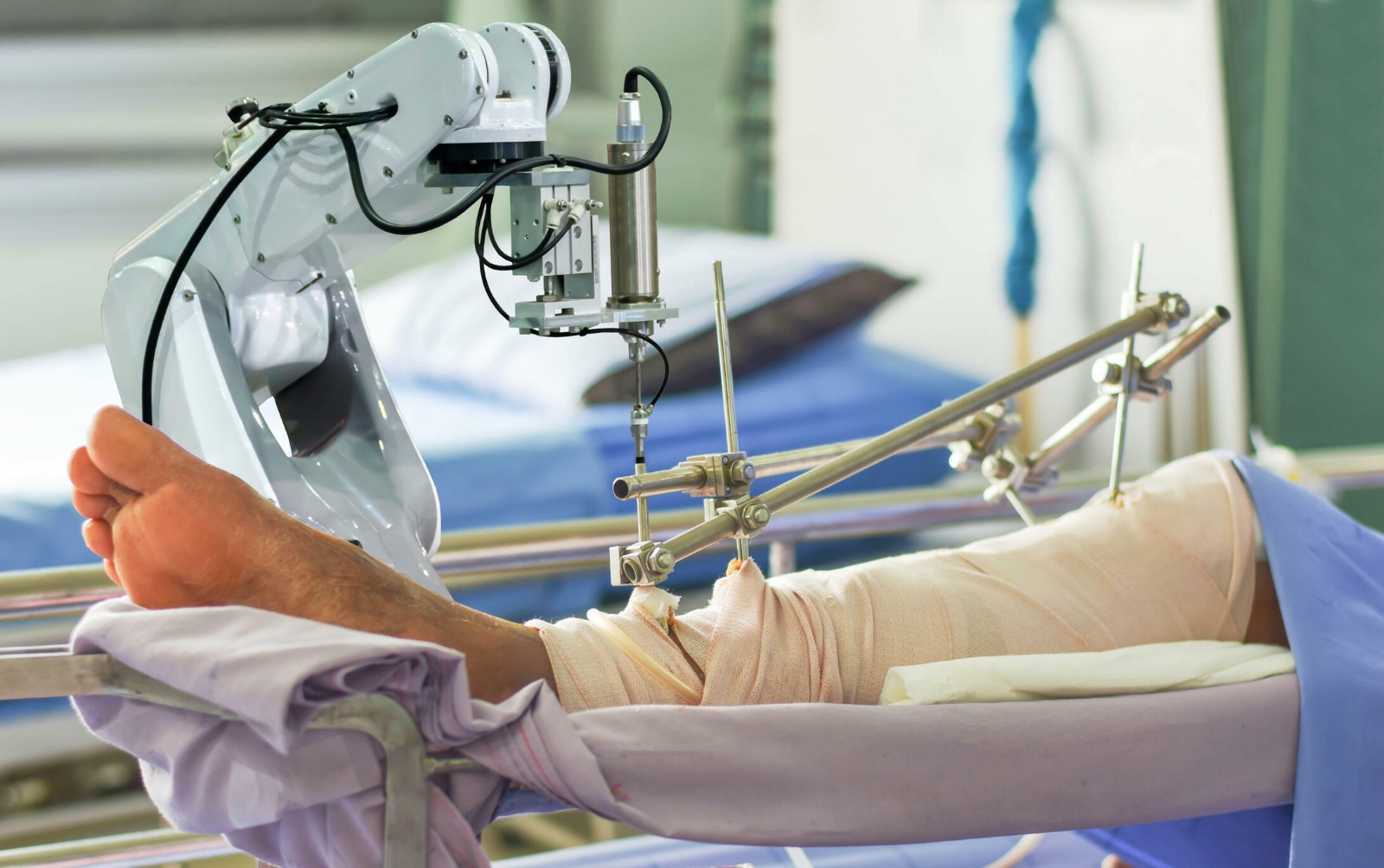Robotic Total Knee Replacement (TKR) with Imported Implants
Dr. Abhay Chhallani is proud to offer cutting-edge Robotic Total Knee Replacement procedures using high-quality imported implants from renowned manufacturers, Johnson & Johnson and Zimmer. This advanced surgical technique aims to provide effective relief for individuals suffering from arthritis and debilitating knee joint issues. Here, we outline the comprehensive process and advantages of Total Knee Replacement surgery.

Understanding Total Knee Replacement (TKR)
Total Knee Replacement, or arthroplasty, is a surgical intervention designed to address arthritis-related issues in the knee joint. This procedure involves replacing the arthritic knee joint with highly specialised metal and plastic implants. These implants are made from surgical-grade metal alloys, ensuring durability, and a special wear-resistant plastic insert to withstand the test of time. Total Knee Replacement stands as one of the most successful surgical interventions available today.
Before opting for surgery, patients often explore conservative treatments, such as simple analgesics, weight loss, anti-inflammatory medications, activity modification, walking aids, or physical therapy. When these measures fail to provide relief, it may be time to consider Total Knee Replacement.
Who Is a Candidate for Total Knee Replacement?
Total Knee Replacement is typically recommended for patients experiencing:
Advantages of Total Knee Replacement Surgery
The decision to undergo Total Knee Replacement surgery is a collaborative one involving the patient, the surgeon, and their family.
The benefits of this surgery include:
Components of a Knee Replacement
A Total Knee Replacement consists of several components:
The procedure is designed to minimise local trauma to the knee joint:
Each knee is unique, and Total Knee Replacement accounts for these differences by offering various sizes and, if necessary, additional pieces of metal or bone for cases with significant bone loss.
Preparations Prior to Replacement Surgery
Effective preparation before Total Knee Replacement surgery is essential for optimal results and a smooth recovery:
Risks of Knee Surgery
As with any major operation, Total Knee Replacement surgery carries potential risks and complications. Surgical complications may include:
Patients are encouraged to discuss any concerns with Dr. Abhay Chhallani or their medical team before undergoing the procedure.
After Your Knee Replacement Surgery
After the surgery, patients will have a drip in their arm for pain medication and antibiotics. Hospitalisation for 4-5 nights may be necessary. Patients may require a walker or crutches following the procedure. Going Home After Replacement Surgery It’s important to arrange for someone to take you home, as driving immediately after a knee replacement is not recommended.
Return to Work
Patients may return to light work duties after 3-4 weeks. However, they should avoid prolonged standing, heavy lifting, bending, and excessive stair climbing for a minimum of 6 weeks.
Under the expert care of Dr. Abhay Chhallani and with imported implants from Johnson & Johnson and Zimmer, Total Knee Replacement offers an effective solution for individuals suffering from knee arthritis, ensuring a more comfortable and active life. If you’re experiencing knee pain or have questions about Total Knee Replacement, contact Dr. Chhallani for a personalised consultation and explore your options.
